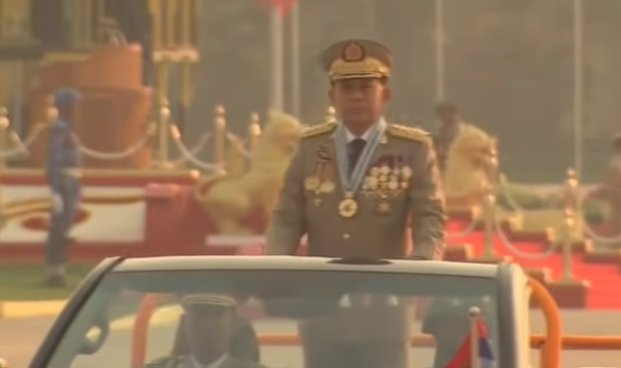Myanmar junta losing grip on power. It is no secret that pertaining to Sino-American tensions, one of the major flashpoints between the two powers is the current status of Taiwan and the potential conflict that may break out. The current conflict in Ukraine is impacting strategies that involve defense of the island.
However another situation is festering in Asia. This could also become another source of tension between Beijing and Washington. The situation is not a relatively new concern in Southeast Asia. It has been a problem for decades even though it had a brief facade at democratic governance that was removed by a Military Coup in February 2022.
The country that is being discussed is Myanmar or Burma. That should not be any surprise to anyone. The country has had a long history of autocratic governments led by Military Officers ruling from 1962 to 2011 with a decade of a civilian fronted government that lasted for a decade.
Traditionally one of the main backers of the Juntas in Burma or Myanmar as it is currently referred to as Myanmar has been China. Whether it’s providing weapons or even flaunting an international sanctions program by conducting trade. Beijing has often provided support for the Junta at the United Nations as well.
Contrast that policy to the one advocated by the United States. More often than not the policy of Washington has been to support the Pro-Western Civil Society in the Country. There was a moment of optimism when Au San Suu Kyi was elected as President. That luster faded when the Rohingya crisis broke out and her government defended the crackdown against this minority group.
Although it does not get the coverage in most international media outlets as the plight of the Rohingya, The Myanmar Military has also cracked down against the Ethnic Groups that also practice Christianity. There are several steps that have been taken that should raise some concerns.
First off is the extension of Martial Law in the Sagaing Region of the Country. So far during the month of February the total number of townships that are under direct Military rule now rests at 40 across 8 regions and states. Speaking earlier this month to the National Defense and Security Council, The current leader of the Junta Min Aung Hlaing stated that security needed to be tightened in 65 out of the 330 townships in the country to restore order.
Another step that will be taken is an interesting one. The Junta announced on February 14th that it will grant gun licenses to loyal citizens, specifically government employees and veterans with the caveat that they comply with orders from local authorities to participate in security or law enforcement activities.This act reverses a policy that went into force after the 1988 pro-democracy uprising when the Junta revoked all gun licenses and ordered civilians to turn in their firearms. There are two ways to look at this.
First off this will actually increase the concerns of an all out Civil War breaking out in the country instead of noticing isolated pockets of insurgency. Since there is no clear unified command among the various groups that have taken up arms against the Military despite the increasing frequency of attacks this has to remain a valid concern.
The gun license decision is interesting. There are several questions to be asked. First question that comes to mind currently has to be: Is the current strategy working? That appears to be a resounding No. This could also be a sign that the Myanmar Military casualty rate is higher than they are informing people. Basically this means the Junta is losing right now.
So what happens when the Junta goes to its major ally China? What will Beijing do? Already the Chinese have been involved with talks with ASEAN regarding the role of Myanmar in the bloc. So a sudden decision to support the Junta should not go unnoticed in Washington which is beginning a new series of measures regarding Myanmar that were enacted by Congress and signed into law last year.
This will continue to need more scrutiny.





